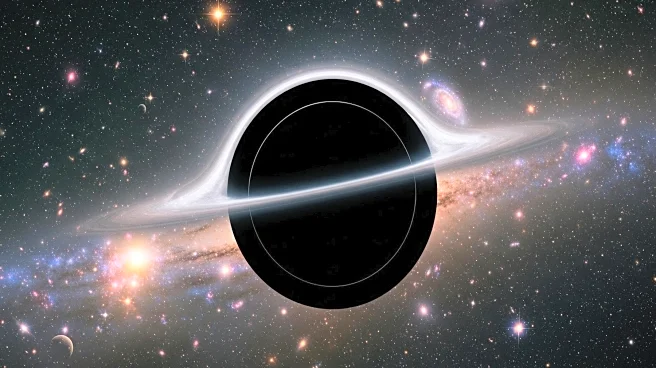What's Happening?
Astronomers using the James Webb Space Telescope have identified what may be the oldest black hole in the universe, formed less than a second after the Big Bang. This discovery challenges the conventional understanding that black holes are formed from the collapse of massive stars. The findings suggest the existence of primordial black holes, which are thought to have formed in the early moments of the universe. These black holes could provide insights into the evolution of the universe, as they may have formed without preceding galaxies. The study, which is awaiting peer review, highlights the potential role of dark matter in the formation of these ancient black holes.
Why It's Important?
The discovery of a primordial black hole has significant implications for our understanding of the universe's evolution. It challenges existing theories about black hole formation and suggests alternative processes involving dark matter. This could reshape our understanding of cosmic history and the role of black holes in galaxy formation. The findings may also provide insights into the nature of dark matter, a mysterious substance that makes up a significant portion of the universe's mass. Understanding these processes could lead to breakthroughs in cosmology and physics, impacting scientific research and technological advancements.
What's Next?
Further research and observations are needed to confirm the existence of primordial black holes and understand their formation mechanisms. The next generation of gravitational wave detectors could provide more evidence and help settle the debate. Scientists will continue to study the data from the James Webb Space Telescope to explore the implications of these findings. The research community may focus on identifying more primordial black holes and understanding their role in the universe's evolution. This could lead to new theories and models in cosmology, influencing future scientific exploration.








